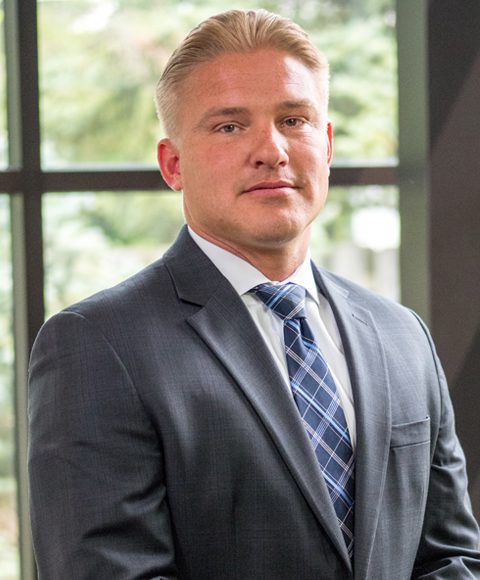Many security clearance applicants are stuck with the dilemma of having to disclose embarrassing and sometimes illegal behavior that they hoped to keep secret. Some have secretly used drugs such as marijuana, mushrooms, cocaine, and methamphetamines. While others have paid for sex acts, which the federal government considers illegal, or they have had extramarital affairs and never informed their partners. Applicants often wonder if they will get caught if they intentionally and illegally omit this information during the application process. Here are some things every applicant should consider.
You can contact us 24 hours a day, 7 days a week via phone at 8885294543, by e-mail at info@tullylegal.com or by clicking the button below:
Illegal Drug Use
Applicants often have a history of experimentation with marijuana. As the number of states that have legalized marijuana rises, the percentage of applicants who have previously used marijuana rises with it. There are more opportunities, and marijuana use is seemingly more acceptable, so more people have a history of use. While all applicants have a duty to be honest and to disclose any information that is responsive to a question on the application or posed by an investigator, an illegal omission of marijuana use would likely go unnoticed during the initial adjudication. There is a chance a reference or family member discloses the drug use to the investigator, but that doesn’t happen often and wouldn’t happen if they were unaware. There is also a strong possibility that investigators will soon begin cross-referencing medical marijuana records and dispensary records to search for security clearance applicants. Other applicants have taken their experimentation further and used heavier drugs, which were clearly illegally obtained. There would be no records of such purchases, but there might be information and disclosures contained within medical or mental health records. While initial investigations might not catch any omissions, applicants must be forthcoming and start with a clean slate if they hope to have a long and successful career. This information will likely come to light on future applications and potentially during polygraphs, which would trigger guidelines involving personal conduct, drug use, and illegal activity and will likely cause the applicant to lose their clearance and the career they worked hard to build. Applicants should avoid overreporting but should provide honest and persuasive responses to all questions asked of them.
Sexual Acts
Much like drug use, many applicants have paid for sexual acts or taken part in behavior that might trigger the sexual behavior guideline. Some have had or are having at the time of applying an extra marital affair. Initially, illegal omissions of this information might go unnoticed. There is a strong likelihood that the information will come up down the road on future applications or during polygraphs that are often necessary for career progression or promotions. It’s always best to comply with federal law and disclose all information that is in response to the questions posed, but there is no need to overreport. Stick to answering the questions that are asked, and do your best to be persuasive in doing so. Start with a clean slate, so no secrets can come back to haunt you as you attempt to climb the ladder later in life.
Ready to book your consultation? Click below to pay our consultation fee and book your meeting with an attorney today!
Why is Disclosure so Important?
The government is soliciting this information from all applicants for multiple reasons. First, the government must consider the applicant’s character. They must determine whether an applicant is reliable and trustworthy. The government must determine whether it is clearly consistent with government interests to grant the requested access to classified information. Generally, the government will overlook minor, infrequent offenses if the applicant appears to otherwise be reliable or trustworthy. The disclosure is important because the government must also consider whether an individual is susceptible to coercion or blackmail. When considering drug use or sexual conduct, an applicant’s attempt to hide such behavior greatly increases the risk of coercion or blackmail. For example, a married applicant who paid for sexual acts or had an affair and failed to inform their partner would be highly susceptible to coercion and blackmail. Similarly, a person with a limited drug history that they are embarrassed about might also be susceptible to coercion and blackmail. These applicants must disclose this information to their partner if they hope to obtain a security clearance.
How to Disclose
Answer the questions that are asked. People often fill out the security clearance application with a guilty conscience and a goal of providing all potentially negative information. They tend to do so in an objective manner, which often makes the facts appear worse than they actually are. The applicant’s goal shouldn’t be to clear the conscience or to provide all the information the applicant perceives to be negative. The goal should be to provide all information that is responsive to the question that is asked, and be persuasive in doing so. The application provides space for additional comments, and that space should be used to incorporate mitigation into the responses. Avoid overreporting information that isn’t responsive to a question being asked in the application or by the investigator. If you have questions about how to best provide these types of disclosures in your application, seek assistance early in the process from an experienced security clearance attorney.
As a Managing Partner at Tully Rinckey PLLC, Anthony Kuhn focuses much of his time on the representation of military personnel and members of the intelligence community. He has extensive experience assisting clients in navigating matters involving security clearance suspensions and revocations, appeals to the Discharge Review Boards and Boards for Correction of Military Records, UCMJ violations and non-judicial punishment, appeals for service-connection before the Department of Veterans Affairs, rebuttals to GOMORs and QMP selection notifications and requests for Special Selection Boards. He also serves as the Chair of the National Security Lawyers Association. He can be reached at info@tullylegal.com or at 8885294543.








